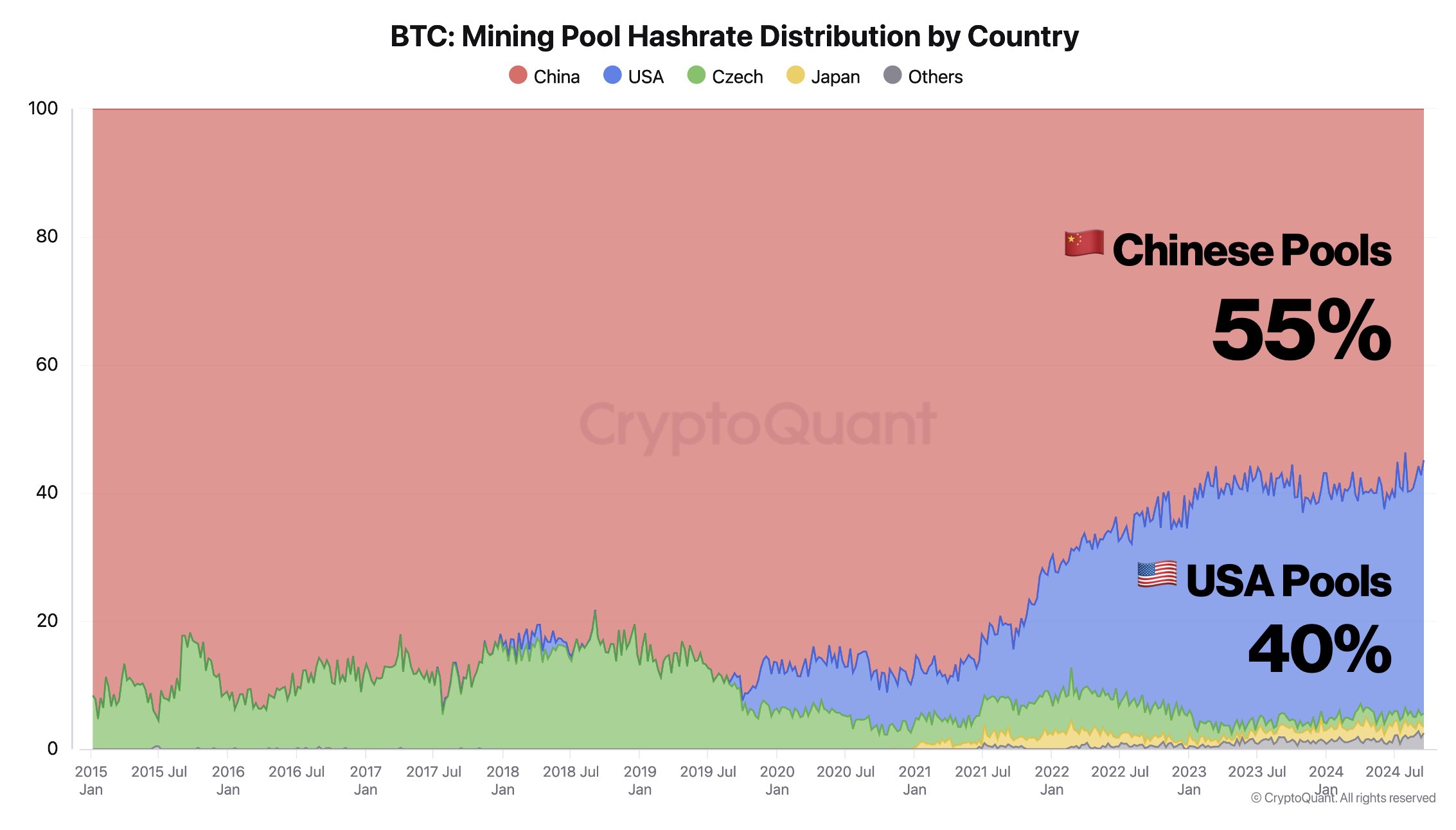Bitcoin’s global mining landscape is undergoing a notable shift as U.S. mining companies gain dominance.
A recent chart shared by CryptoQuant’s founder, Ki Young Ju, highlights this evolving trend. The chart shows the geographical distribution of Bitcoin mining pools from 2015 to 2024. It illustrates how mining power has recently shifted from China to the U.S., with other countries playing a minor role.
Decline of Chinese Mining Pools
As seen from Young Ju’s chart, from 2015 to 2021, Chinese mining pools held a dominant position, controlling nearly all of the Bitcoin network’s hashrate. This era of overwhelming Chinese dominance is visibly represented on the chart as a broad red area, signaling a near-monopoly by Chinese miners.
Despite China maintaining a significant share at 55% today, its dominance has gradually declined since 2020. This decline began when the Chinese government imposed regulatory changes on the crypto-mining sector, prompting many operations to migrate abroad.
Rise of U.S. Mining Pools
Amid China’s regulatory crackdown, U.S. mining pools began to expand rapidly, accounting for 40% of the Bitcoin network’s hashrate as of now. The U.S. saw its mining share grow significantly from mid-2021, driven by the relocation of Chinese miners seeking more favorable conditions.
The chart’s blue area, representing U.S. mining pools, shows steady growth, highlighting the increasing influence of American institutional miners. This growth marks a drastic shift, as the U.S. had a minimal presence in the mining sector before 2021.
Energy Use and Emerging Mining Markets
The surge in U.S. mining activity has also impacted energy consumption. A report from the U.S. Energy Information Administration (EIA) disclosed that Bitcoin mining accounted for 0.6% to 2.3% of the U.S. total energy demand in 2023.
This electricity usage is comparable to the annual power consumption of several states, including Utah and West Virginia, and equates to the needs of three to six million homes.
While the U.S. continues to grow, other regions, such as Russia, are also making regulatory strides. In August, Russian President Vladimir Putin signed a law recognizing cryptocurrency mining as a legitimate business, establishing a formal framework for mining activities within the country.
DisClamier: This content is informational and should not be considered financial advice. The views expressed in this article may include the author's personal opinions and do not reflect The Crypto Basic opinion. Readers are encouraged to do thorough research before making any investment decisions. The Crypto Basic is not responsible for any financial losses.



